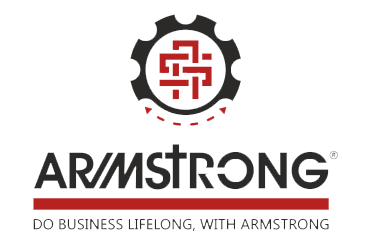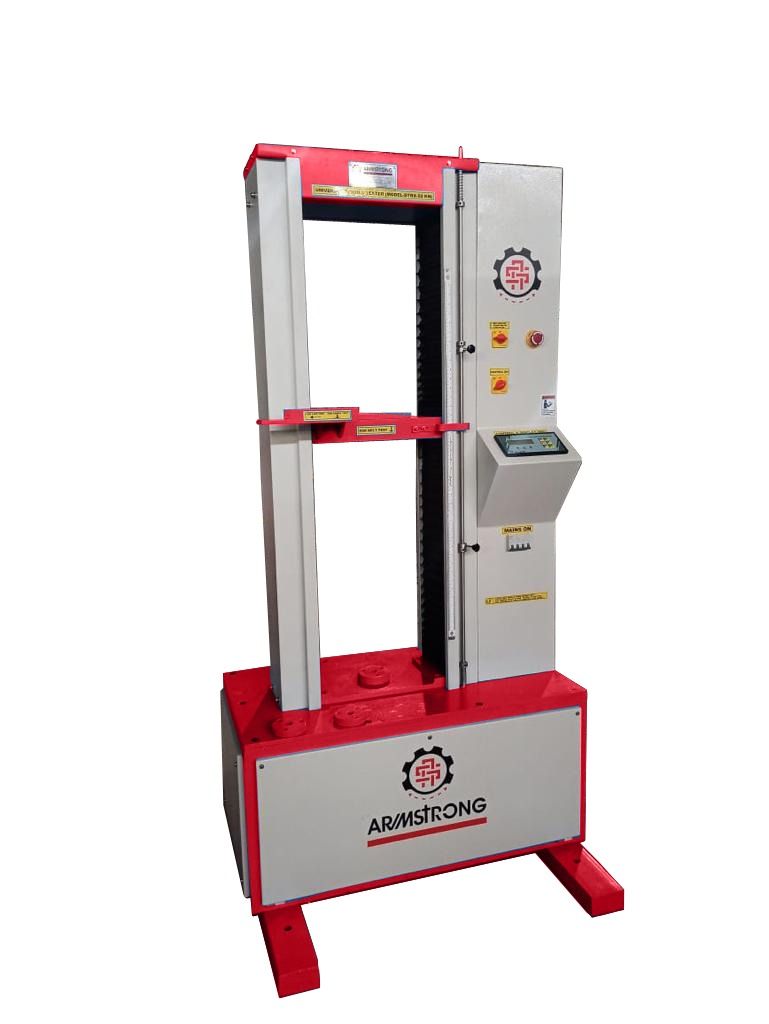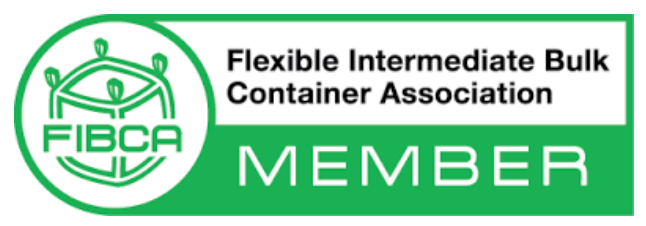TENSILE STRENGTH
MACHINE
One of the most crucial components of an FIBC bag is its belt or webbing, which is responsible for safely lifting and handling loads that can weigh up to several tons. To ensure the durability, safety, and compliance of these belts, tensile strength testing is an essential quality control process. This is where the Tensile Strength Machine comes into play.
With the increasing use of FIBCs across various industries, ensuring the reliability of every component—especially the belts—is non-negotiable. Investing in tensile strength testing machines not only helps manufacturers comply with safety standards but also protects end-users from the risks of product failure. Regular and accurate tensile testing of FIBC belts is a cornerstone of quality assurance, offering peace of mind to manufacturers, transporters, and customers alike.
How Does the ARMSTRONG Tensile Testing Work?
- The FIBC belt sample is securely mounted between two grips of the machine.
- A controlled pulling force is applied until the sample either reaches the maximum specified load or fails (breaks).
- The machine records key data such as:
- Breaking strength
- Elongation percentage
- Load vs. extension graph
The results help determine whether the belt material is suitable for production or if it needs improvement.
The Tensile Strength Machine used for FIBC belt testing is a specialized piece of equipment designed to accurately measure the tensile strength of webbing materials. Key features include:
- High Load Capacity: Typically designed to handle forces up to 10 tons or more depending on FIBC specifications.
- Digital Display & Data Logging: Provides real-time test results with precise force measurement and elongation data.
- User-Friendly Interface: Easy-to-operate control systems for consistent testing.
- Robust Clamping System: Secure grips to hold the belt in place during high-force testing.
- Compliance with Global Standards: Machines are often calibrated and certified to meet international quality and safety standards.



